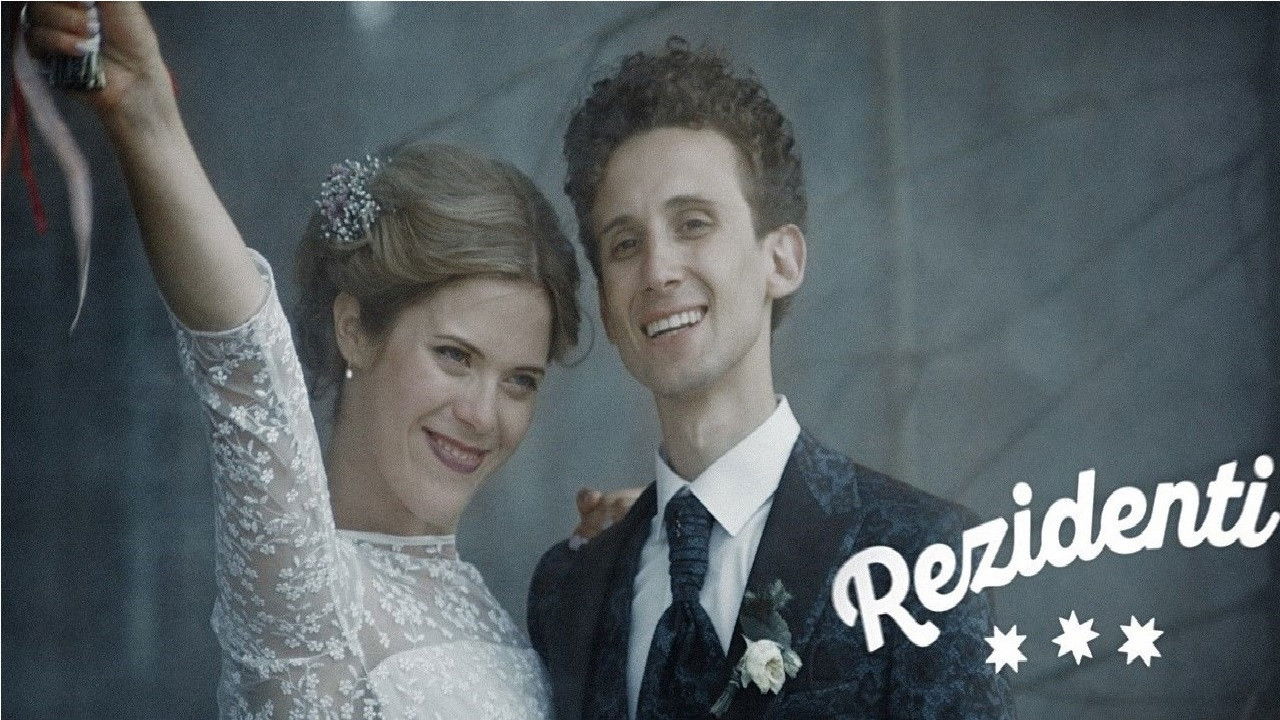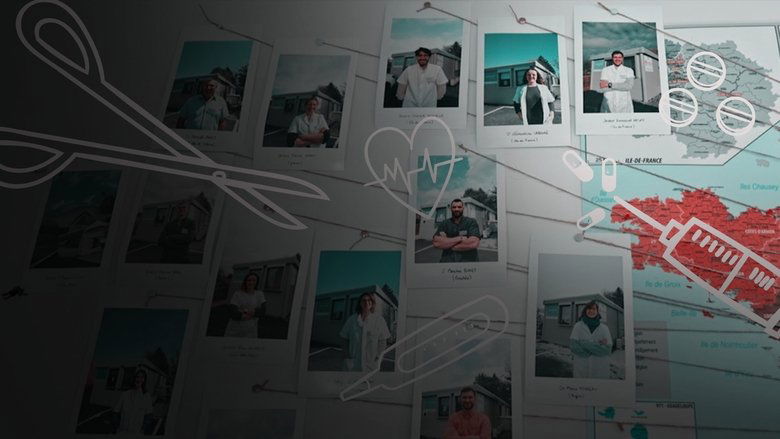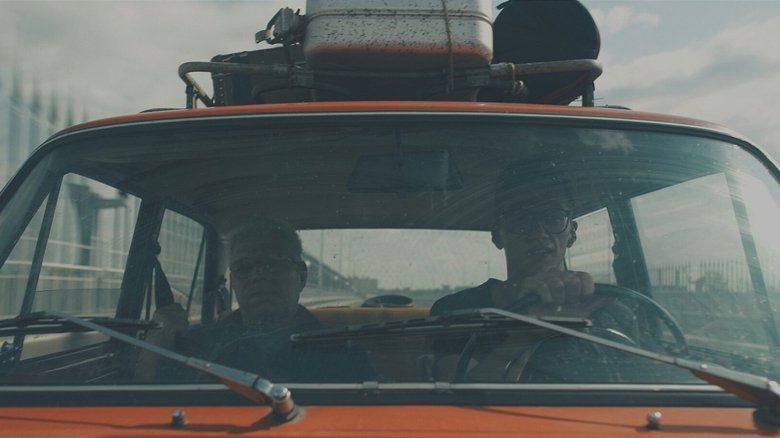
Residents (2017)
The documentary “Residents” probes problems in Latvia in general and Latvia’s medicine in particular with the story of two energetic young interns, Kārlis and Laura.

The documentary “Residents” probes problems in Latvia in general and Latvia’s medicine in particular with the story of two energetic young interns, Kārlis and Laura.
Viktors is an entrepreneur with a unique offer – he has built a bar, bakery, spa, hotel and an auto-shop in a former “sovkhoz” cafeteria in the village of Lone. Viktors understands life, and that his words carry weight – almost 500 village inhabitants are now employed. Lone is a lively place both day and night, full of youths and many other businesses. Viktors is very proud.
Nearly everybody has been to the circus to laugh about clowns, be afraid of the lions and to eat sugar cane. However, can anyone imagine that circus artists reside right there in the circus building - above the arena in the second floor hotel rooms - where they also prepare meals, do their laundry and try out their magic tricks? For over 125 years, despite the discomfort of non-renovated premises and ubiquitous animal odor, local and foreign circus artists follow their routine to create the circus miracle. Sugarcane, Coati and Monowheel is a film about those who dwell in Riga Circus and about what happens outside the arena before and after meeting audience under the circus dome.
Lords of Riga allows to see an insight into a passionate subculture of bike couriers. Weaving their way through the urban traffic, they have become silent and sometimes unnoticed witnesses of everyday life in Riga as well as examples of our modern-day society. What is freedom to this bunch of rebellious messengers and where it ends?
A documentary that chronicles twin brothers searching for their absent father in faraway Russia. Having very few leads, the twin brothers – different in character and interests – are also looking for the ties that have never bound them as closely as they would have liked.

For two months, the third-grade students at Cēsis’ New Primary School have been plan-ning and organizing their own graduation ceremony. Throughout this process, the teach-ers are only there to help, trusting in the children’s wisdom, responsibility and ability to organize themselves, make decisions and follow through. Preparations for the celebration involve all the school subjects, turning the school into a place of exciting discovery, where children learn by doing things that are important to them. They enthusiastically live life in the here and now, in all its difficulties and joy.
Two Rigans - Valentīna and Armands - make makeshift yard exhibitions by their homes out of objects they’ve found. They share the same hobby despite not knowing each other. As they’re decorating their little gardens of wonder for the upcoming Midsummer festival, it turns out that they too can find understanding and a sense of not being alone in their dreams.
After receiving an edict from the municipal authorities about the closing of their school, the students at Mežvidi primary school continue to attend lessons and exercise creativity and fun, but it’s all clouded in a sense of fatality. They aren’t many students, and because of that the school resembles a large family rather than an institution. Near the Russian border, deep in the Latgale region, this place will become a nowhere-land once the youth depart. In an intimate message about a national problem, the story focuses on three sisters for whom life is about to drastically change. Through their daily lives and small adventures we try to understand the real meaning of the contention that “the countryside is dying”. And we see hope.
This film probes the activities of the bezvests.lv NGO that looks for missing persons and instructs others on how to find them. Since they started in 2009, they’ve helped find more than 90 people who had gone missing. It follows volunteers during training and on a search mission – theirs is a nerve-wracking task as in many cases they only locate the expired body of the missing person.

In this film a young man and his curmudgeonly grandfather are going 1,800 km to northern Russia in an old Zhiguli car, hoping to find the grave of their great-grandfather, who was deported. The grandfather Andris is sceptic over the lofty quest, initiated by his grand-son, as it’s not known what awaits them at their destination. Andris thinks they won’t find anything and will come back to Latvia without ever learning what happened to his father. However ever-optimistic Kārlis wants to use the journey not only to find answers about the past but also become closer to his grandfather who raised him. They both lost their parents as children.
The documentary chronicles the life stories of two brothers, Kristaps and Krists. Kristaps, the elder brother, is disabled and has trouble talking, but he can rap. His younger brother Krists is one of the best freestyle BMX bikers in Latvia.
The documentary explores issues of beauty and acceptance in a culture increasingly saturated with idealised and unattainable ideals of femininity. It is a story about the world of young girls in today's Latvia, based on conversations about girls' attitudes towards the world and their place in it.
“The Inked Family” follows a couple of married Latvian-born tattoo artists – Anrijs and Monami Frost of online fame. They’re now living in Liverpool with their daughter, and their previous lives in Latvia seem almost surreal to them. The film traces Monami’s past, and the couple’s current lives and the success they’ve found as tattoo artists.
Dinārs is a Latvian schlager singer popular with the ladies and known for his big cat mane. The eponymous film follows his path over a turbulent season of work.
There are about 250 people with a unique ancestry. Livonians – one of the smallest and most endangered nations. Each of Livonians has a duty to preserve their identity and the great history of their ancestors. Trillium follows the footsteps of a poet and researcher Valts Ernštreits, who is one of 20 people able to speak fluent Livonian – an indigenous language related to Estonian and Finnish – in his efforts to look after the language and culture of these ancient settlers of the Baltic Sea coast.
Director Aija Bley's "Brīva Vieta - T17" captures the unique testimony of the modern era of Riga - the life of "antisquoters". The film tells about the daily life and dreams of the youth community and a mute fish, the so-called commune T17. The community lives in a non-landscaped building, so its occupation is a real challenge. The house is located under the paspārns of the association " Free Riga ", whose movement is based on a responsible attitude towards nature and the careful use of resources. Here, the community is motivated by the conviction that so few resources in everyday life should be consumed in the urban environment. The film follows the everyday life of the community members, who use their lifestyle to use the resources of nature, material, culture and time.
Prayer for a Home shows how everyone needs shelter and a home – people in Latvia, Europe and troubled regions throughout the world. The film relates the story of the distinguished Latgalian poet Anna Rancāne and her family – her daughter Terēze, her grandson Daniel, and Daniel’s father, Dara Muhammad Ali – who are trying to stick together despite unfortunate circumstances. Even though Terēze and Anna are Catholic, while Dara is a Muslim from Kurdistan, their love transcends religious, national and cultural prejudice. However, due to circumstances beyond their control, the family is not destined to remain together, despite doing everything they can to stay close.
Māris Strazds (also known as "Mr Black Stork") is a man who's been studying black storks and their behaviour for forty years. His love for and relationship with these beautiful birds is longer than the relationship with his wife. Having spent more than half of his life following black storks, Māris is aware that due to deforestation the number of these birds in Latvia is rapidly approaching zero.
'Vadātājs' is an ancient Latvian mythological creature that leads people to Nowhere. As Latvia has been declared the most superstitious country in the EU, it is important to understand – what do we believe in? Three young filmmakers – a director, cinematographer and sound girl – question if Latvia is a lost country and if a Vadātājs has achieved enormous power by leading Latvian society into confusion. A search for a contemporary Vadātājs*, and the understanding of the origins of confusion within people in the 21st century.
The three speakers represent two of the dialects, with the most common one - the middle dialect spoken in Riga and central parts of Latvia - not featured in the film. In intimate surroundings, a farmer, a schoolteacher, and a herder of ostriches talk about perceived differences between Latvian speakers, and about language policy and their lives.